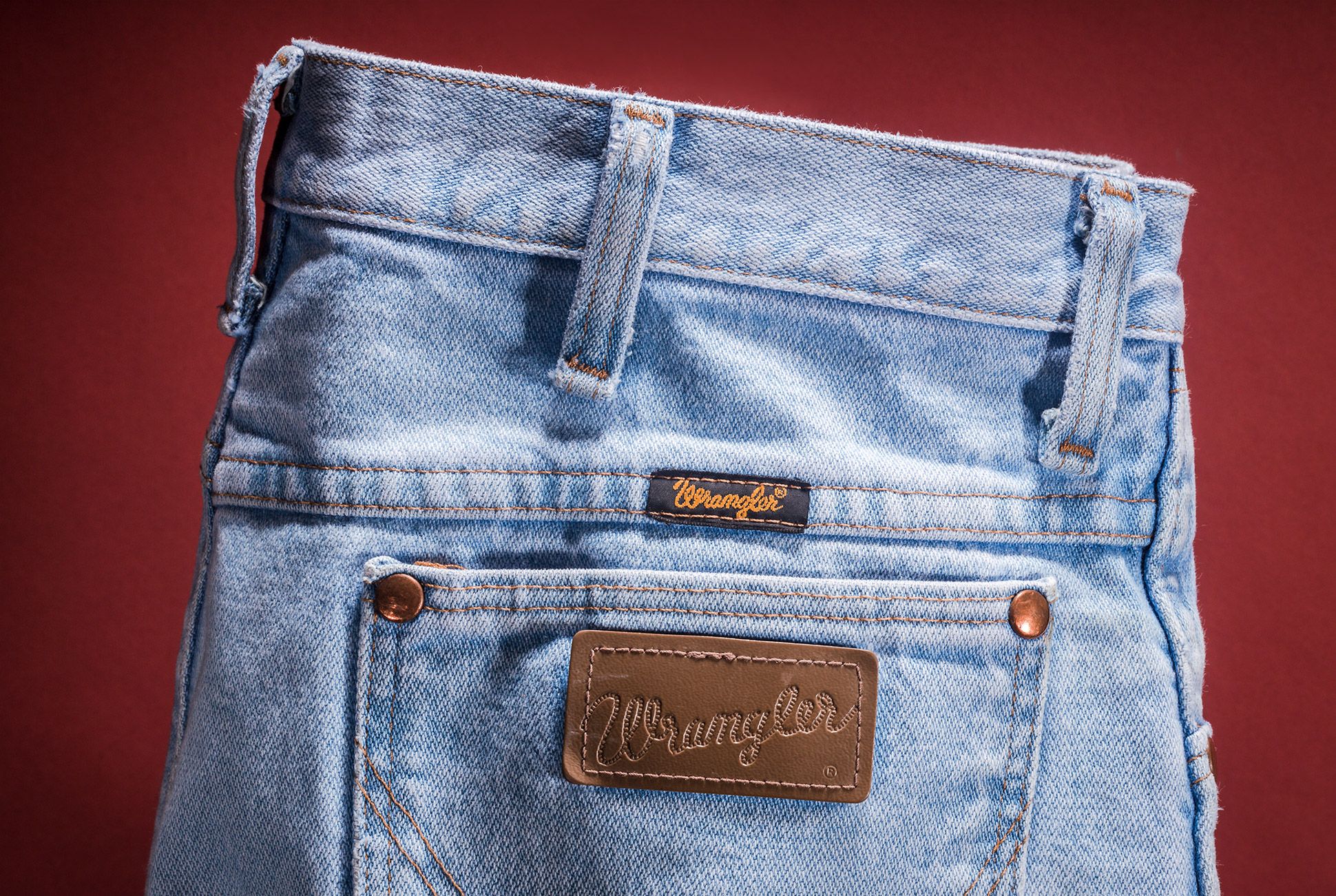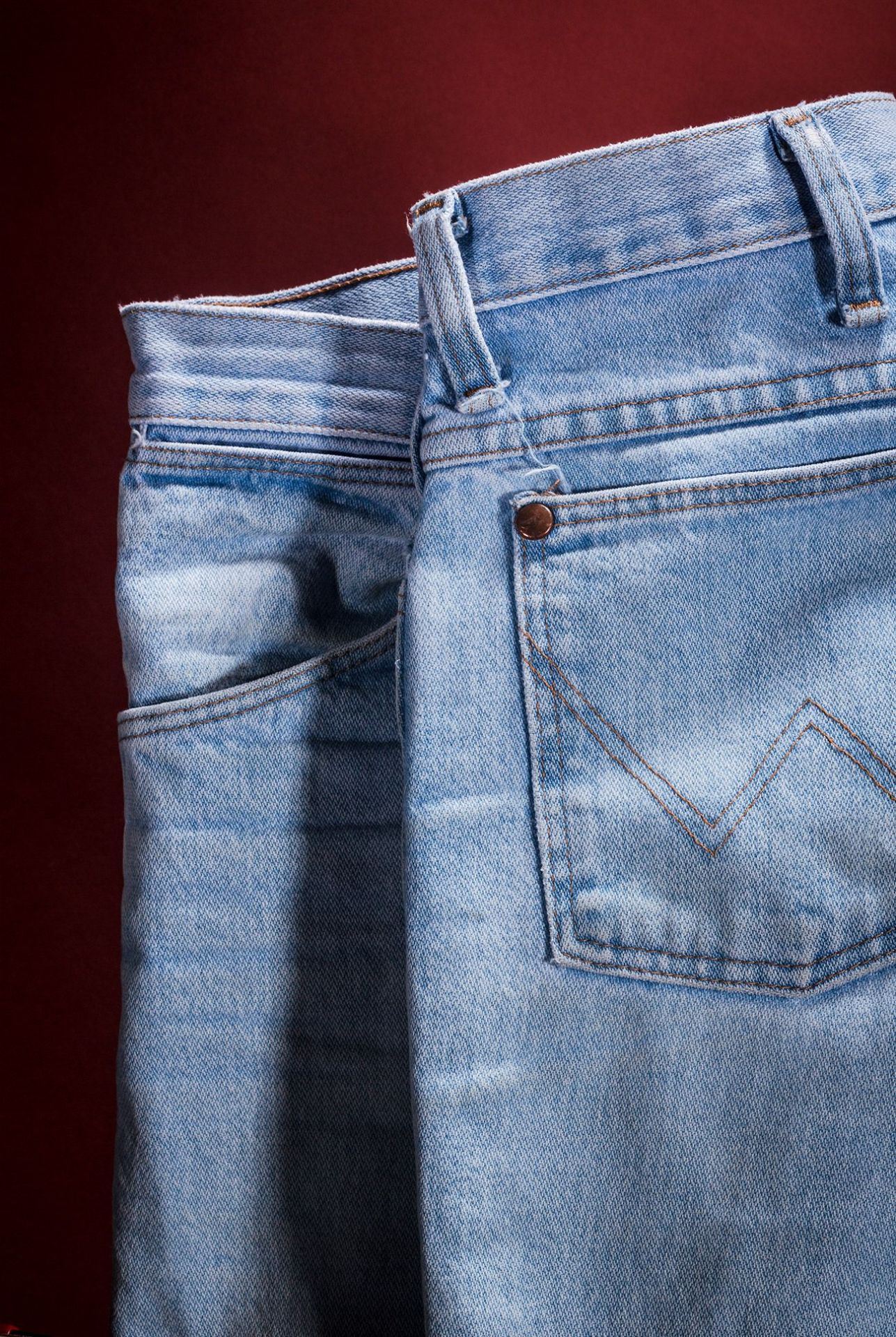In 1904, C.C. Hudson founded the Hudson Overall Company in the thriving textile town of Greensboro, North Carolina. Fifteen years later, he changed the company’s name to Blue Bell Overall Company, which became famous for using sanforized denim in its overalls to reduce shrinkage after washing. The brand acquired the Casey Jones Work-Clothes Company in 1943, securing the rights to its infrequently used brand name, Wrangler, under which Blue Bell introduced the 11MWZ jean to Americans in 1947. It came with a zipper fly and pockets positioned for comfort in the saddle, among other innovations.
While the Wrangler brand became synonymous with the Western market, it became popular with youths in the ‘70s. The brand continued to grow, and in the ‘90s, one in five jeans sold in America was a pair of Wranglers. Like many textile companies before it, the brand closed it’s last U.S. sewing plant in 2005. As the heritage movement grew in the menswear market over the next decade, Wrangler’s voice was regretfully subdued.
In recent years, though, the brand has quietly built a collection for the modern consumer while continuing to honor its rich heritage. Last September, Wrangler released a second collection of shirts, jeans and jackets with psychedelic artist Peter Max — the brand’s first collaboration with Max debuted in the ‘70s. Also for Winter ’17, Wrangler released its 70th Anniversary Collection, a variety of greatest-hits inspired from the brand’s archives. Most notably, Wrangler brought back an American-made collection of tasteful jeans, manufactured solely in Greensboro.
To explore the brand’s new moves, we talked to Wrangler Vice President and General Manager of Wrangler Modern Lifestyle Jenni Broyles. She shared the inspiration behind the American-made jeans, the importance of the brand’s archives and the new focus on outdoor clothing.
Q: What inspired the Made-in-USA collection?
A: It was inspired by our community. We’ve been around since 1947 and with everything that we do, we try to depend on our heritage and our foundation and our legacy. We created this line called 27406 — the Zip code that spans the three miles from where the product’s fabric was loomed [at Cone Mills] to the design of the blue jean to the sewing of the blue jean. That got us really excited. What a better tribute being in our hometown, Wrangler’s birthplace, and working with a partner like Cone Mills.
Q: How has the reception been?
A: It’s been fantastic. We’ve celebrated our roots in Greensboro, North Carolina for quite some time, but I think showing all the generations of people who worked on this product from designers to sewers, we were able to show that pride and the quality of our work.


